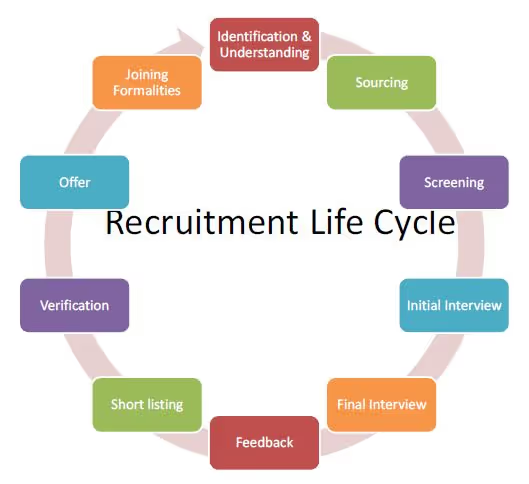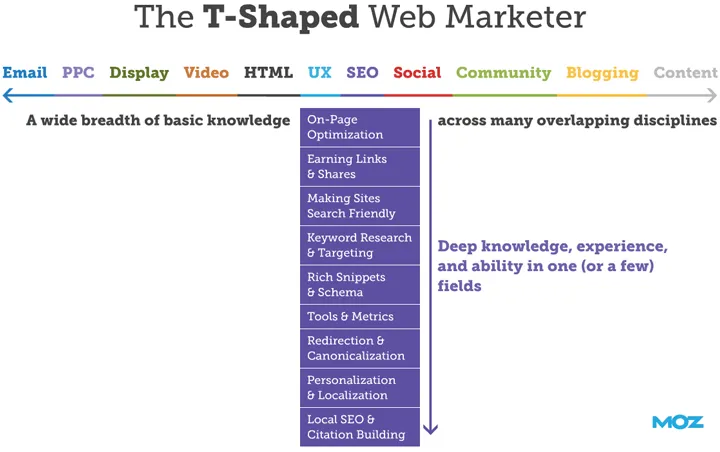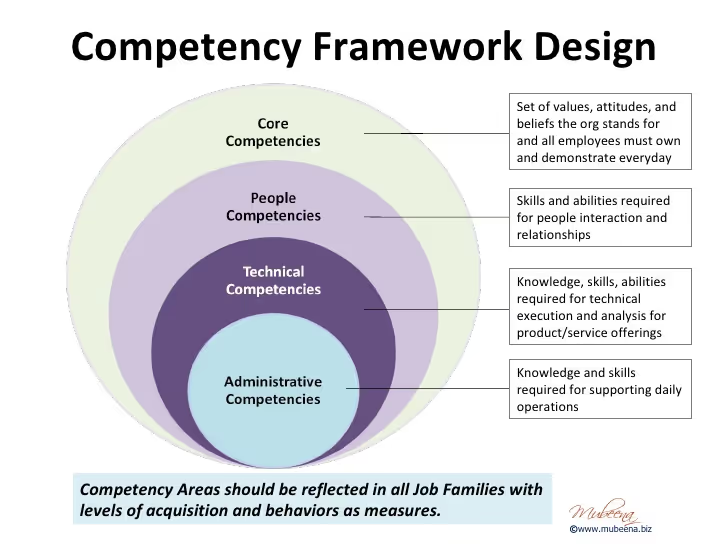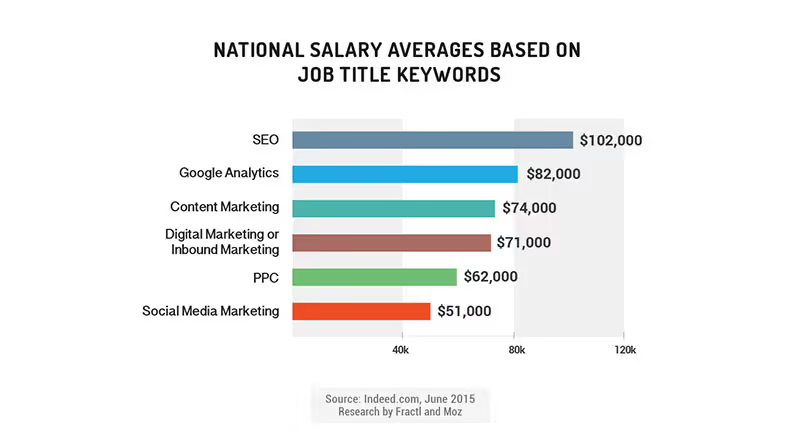Hiring for Marketing is Broken – Here’s How We Fix It
Hiring for marketing teams has become extremely difficult over recent years as the tactics and expertise needed to be successful have changed dramatically. Hiring managers are looking to fill buzzword checkboxes of display, technical SEO, inbound, ppc, copywriting, conversion rate optimization, sponsored content, etc.. without diving any deeper.
To be successful at hiring modern marketers, companies need to take a page from their engineering teams and adopt a technical hiring process. Have marketing teams directly involved in the hiring process so they can review work samples, conduct sample project walkthroughs, and give test projects. As we can no longer rely on executives and hiring managers to fill our teams. Now it's not HR's fault they just don't have the expertise required to truly determine a candidates' actual contributions.
In this post we’re going to look at seven important steps involved in hiring the right marketer for your company. As you’ll see, it’s just as important to understand your own needs as it is to determine the expertise of your candidates.
1. Use Company Goals to Frame the Hiring Process
Most hiring processes aren’t designed with enough flexibility to meet the shifting demands of modern marketing roles. Similarly, they’re very rarely crafted with the goals of the company in mind. As I’ll outline later, because of the varied skill-sets of modern marketers, it’s vital that you’re clear from the beginning about the position you want to fill. Your predetermined outcomes will affect every stage of the hiring process, from the content of your ad to the questions you ask in the interviews.
 ( Source)
( Source)
By answering some key questions, you should be able to come up with a clear picture of what exactly you’re looking for. This will feed into how you evaluate potential candidates in the initial, final and short-listing stages (see diagram above). Consider the following questions about any prospective employees:
- What role will they fill? What type of marketing will they be doing. Are you looking for somebody with a specific skillset in one area and broad competency in several others or are you looking for a high level of expertise in one topic.
- Will they be part of a team? If they are going to be working as part of a team, how will they complement the other members’ skills?
- What results will they be expected to achieve for your company? Be as specific as possible. Will they be responsible for website optimization, running the content strategy, technical SEO, etc?
- Will they be trained in-house? Companies spend an average of $1200 training new marketers. If you’re planning on offering in-house training then it will be important that you define a clear picture of the skills you’re willing to forgo with candidates with a view to teaching them later.
2. Understand the “Modern Marketer” T-Shaped Model
The “T-Shaped” model, shown in the diagram below, is a new way of understanding the skills of modern marketers. If you’re not hiring for the digital sphere, it’s equally applicable to other industries. In short, it outlines a skillset that includes broad knowledge about an array of topics with high-level expertise in only a handful. The reason this model is useful is because it’s usually what most positions in web-based companies call for.
 (Source)
(Source)
Hiring marketers that fit into this model can create a number of benefits for your company, in particular:
- T-Shaped marketers can develop complete marketing plans - Most companies operating (in any capacity) in the digital sphere will usually have one or two dominant marketing channels and several subsidiary ones. A company that relies most heavily on PPC advertising, for instance, will likely also have a social media and search engine presence. A cost-effective marketing plan will need to encompass all of those “secondary” activities whilst providing a high-level strategy to effectively utilize the main marketing channels. T-Shaped marketers, because they combine a broad skillset with one or two points of “mastery”, will be able to achieve this.
- High-level competency fosters respect - If marketers are working as part of a team it’s vital that there’s a degree of mutual respect. When team-members have a wide understanding of abilities in different fields, they tend to respect high competency in others. Marketers that are working at a very high level in their given field are much more likely to report job satisfaction than those that are spreading their skills widely across a range of activities.
- Short-term inadequacies can easily be overcome - If the individuals required to perform a particular task aren’t available in the short-term, T-Shaped marketers are usually able to take over, preventing the project from stalling. For instance, if your data-analyst isn’t available, a marketer with experience with SQL querying will be able to analyse data and feed it back to the marketing team.
3. Avoid Using Hiring Managers
Generally speaking, you want to make sure that people who have a solid understanding of both marketing and the unique requirements of the role that you’re seeking to fill are in charge of the recruitment process. Modern marketing is a nuanced topic and only someone with genuine experience will be able to tell the difference between two seemingly sound but ultimately different answers to an interview question.
Similarly, a hiring manager (usually) doesn’t have a solid grasp on the kind of metrics, techniques and technology that a prospective marketer needs to be familiar with. In order to ask strong follow-up questions, the interviewer needs to understand what they’re asking about and not get fooled by buzzwords/vague descriptions.
4. Determine Expertise
One of the key problems that companies looking to hire marketers face is the absence of a clear set of benchmarks by which to gauge a candidate’s talents and abilities. Colleges now offer a range of degrees, with some even specialising in online marketing, but these are often ill-suited to the specific demands of particular verticals. Even concrete examples of results that candidates have generated - increases in lead and traffic generation, for instance - don’t necessarily translate to success in another role.
As with the graph below, you will want to develop your own “competency framework” and understand how any new marketer will effectively within it.
 (Source)
(Source)
Generally speaking, a prospective marketers skillset will be distributed over the following four categories.
- Past experience - Always tie a candidate’s skills with specific, tangible results wherever possible. What campaigns were they involved in? How have they implemented new advertising channels into their previous company’s strategy? What specific metrics have they used to gauge success?
- University education - The trouble with university courses is that they tend to be heavily theory-based and slow to evolve in relation to the fast-paced world of digital marketing - most academic institutions usually lag months if not years behind. Entrepreneur and internet commentator Andrew Keen has called their pace-of-change “glacial”. This isn’t to say that university degrees are valueless, only that they should be viewed in the context of real-world experience
- Online qualifications - Online qualifications, from the likes of Hubspot, Tradecraft, Content Marketing Institute etc., can often be more informative than a 3-year degree. They’re invariably more up-to-date and usually point to competency in specific areas.
- Level of knowledge and “engagement” with industry - This is a little bit harder to pin down but is one of the best indicators of how up-to-date a marketer is with the changes in the industry. You can gauge their “engagement” by asking for the names of the blogs they follow, opinions about recent significant changes and predictions about the future of SEO/content marketing/social advertising etc.
5. Clarify Skills and Roles in Candidates’ Previous Positions
Your interview process should be based on your company goals, which will help you identify the exact skills and abilities for the role you’re trying to fill. In order to clearly understand a candidate's previous successes, as opposed to those that are simply claiming credit for, you should consider the following two points:
- Understand cross-departmental successes - When evaluating a candidate’s previous achievements, it’s important that you find out how and to what degree they interacted with other departments in their company. If, for instance, a candidate claims in their resume that they doubled website traffic by running an effective social media campaign, that’s your cue to dig right down into which other people they were dependent on. Did they craft the content themselves? Where they responsible for converting user data into actionable insights? Very often the successes that marketers like to claim as their own were achieved in a much broader company ecosystem.
- Understand autonomous personal successes - Personal blog posts and side projects can also be strong indicators of competency. Some companies are placing side projects above academic qualifications in terms of importance.
6. Thoroughly Test Candidates
It’s very difficult to know from a resume and an interview if somebody is going to be good enough for your company. Because marketing roles elude standard criteria (every company’s needs will be different) it’s always worth testing candidates beyond the standard interview process.
In particular, you may want to consider/involve the following elements:
- Affinity with your marketing channels and audience - Suppose that you are a SaaS company that sells to a B2B audience looking for a marketer to ramp up your social media efforts. You may have a candidate with an exceptional record of social media success, but if their experience is with retail B2C sales, they may have trouble understanding your customer-base on an intuitive and experiential level.
- Technological literacy - Given the pervasiveness of different software for researching, using and measuring online marketing channels, literacy with new technology is an absolute must. It’s important to test for the ability to adapt to new and evolving marketing software rather than just competency with those that are particularly important (Experience with Marketo, HubSpot, Google Analytics, for instance).
- Use test exercises - It’s astounding how many employers don’t test potential candidates with their own in-house exercises. Creating a specific test will let you achieve two things. First, it will give you an idea of the practical and applicable skills of a marketer beyond the theory-based answers to interview questions. Secondly, and perhaps more importantly, you can design the exercise so that it tests for the skills that are uniquely needed for your company.
7. The Big Question: How Much to Pay?
The question of pay is at the forefront of everybody’s mind. To offer a quick answer, I’ve included some data that gives a rough idea of the range of salaries expected for certain marketing positions. As you can see, SEO ranks highest, with social media at the bottom.
 (Source)
(Source)
Of course, the salary that you offer will depend on the unique requirements of the role you’re seeking to fill. If you are looking for a single individual with a range of skills and high competency in a handful of verticals (following the T-Shaped model) you will likely pay more than if you are hiring a small team with specific skills but little crossover competency in other fields.
Wrapping Up
The nature of the modern digital sphere is such that it defies easy definitions. Hiring good people requires both a flexible and a process-driven approach, one that accounts for all the unique needs of your company and the roles in it.
In contrast to twenty or thirty years ago, marketers nowadays usually have broader skill-sets with one or two areas of high-level expertise. This means that whilst one marketer may be ideal for your role, another will fail to meet your requirements. Having a marketer run the interview process, give test projects and conduct project walkthroughs will help your team get the types of skills you're looking for and avoid going down the wrong path.